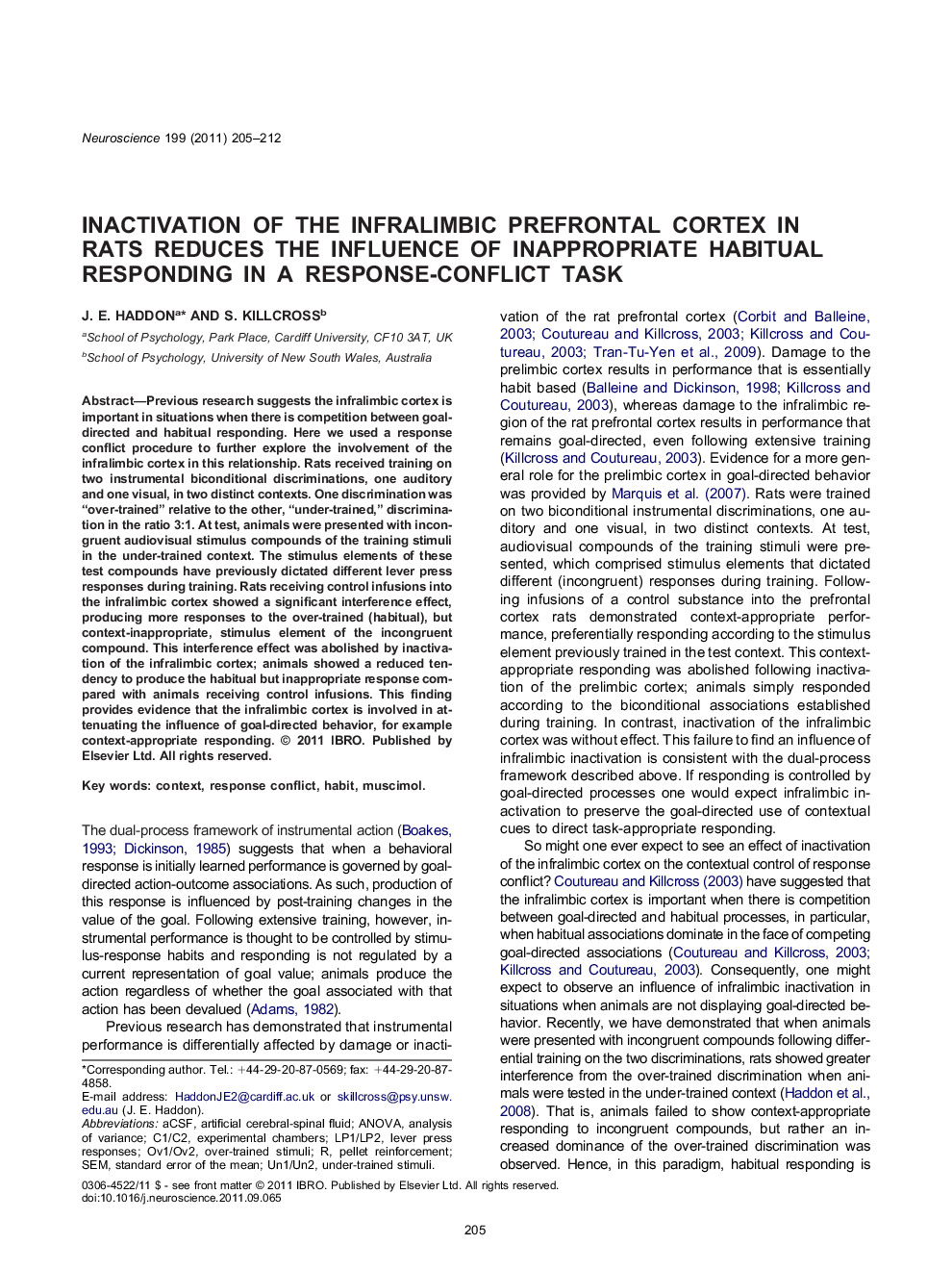| Article ID | Journal | Published Year | Pages | File Type |
|---|---|---|---|---|
| 4338670 | Neuroscience | 2011 | 8 Pages |
Previous research suggests the infralimbic cortex is important in situations when there is competition between goal-directed and habitual responding. Here we used a response conflict procedure to further explore the involvement of the infralimbic cortex in this relationship. Rats received training on two instrumental biconditional discriminations, one auditory and one visual, in two distinct contexts. One discrimination was “over-trained” relative to the other, “under-trained,” discrimination in the ratio 3:1. At test, animals were presented with incongruent audiovisual stimulus compounds of the training stimuli in the under-trained context. The stimulus elements of these test compounds have previously dictated different lever press responses during training. Rats receiving control infusions into the infralimbic cortex showed a significant interference effect, producing more responses to the over-trained (habitual), but context-inappropriate, stimulus element of the incongruent compound. This interference effect was abolished by inactivation of the infralimbic cortex; animals showed a reduced tendency to produce the habitual but inappropriate response compared with animals receiving control infusions. This finding provides evidence that the infralimbic cortex is involved in attenuating the influence of goal-directed behavior, for example context-appropriate responding.
▶Prefrontal cortex is important when there is competition between goal-directed and habitual responding. ▶Current study uses a response-conflict procedure designed to mimic aspects of human cognitive paradigms such as the Stroop task. ▶Rats, like humans, showed an interference effect during incongruent trials; responding according to the “habitual” cue, rather than the context-appropriate goal-directed cue. ▶Inactivation of the infralimbic cortex abolished this interference effect. ▶Damage to different underlying processes may manifest in a similar pattern of impaired incongruent performance.
